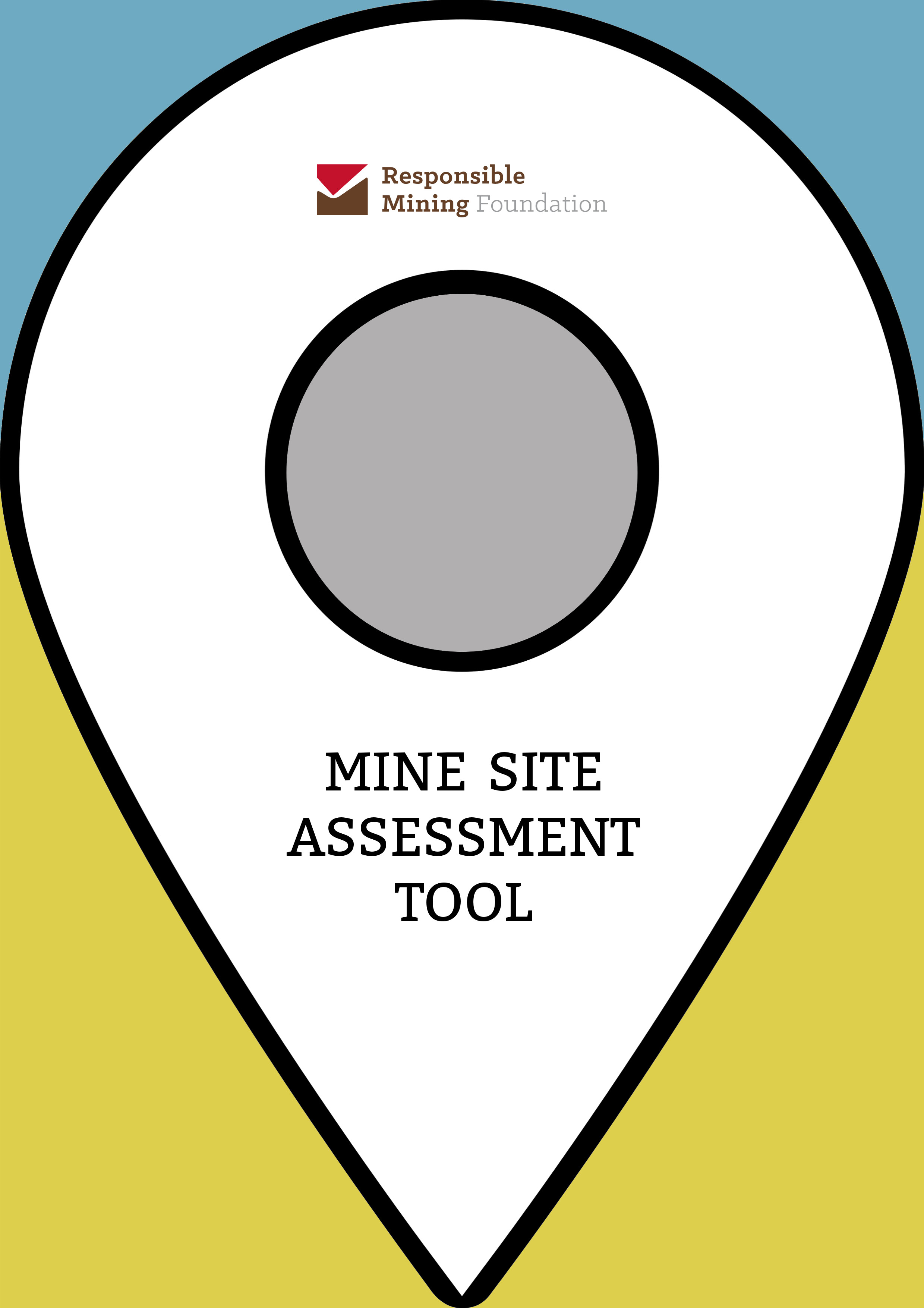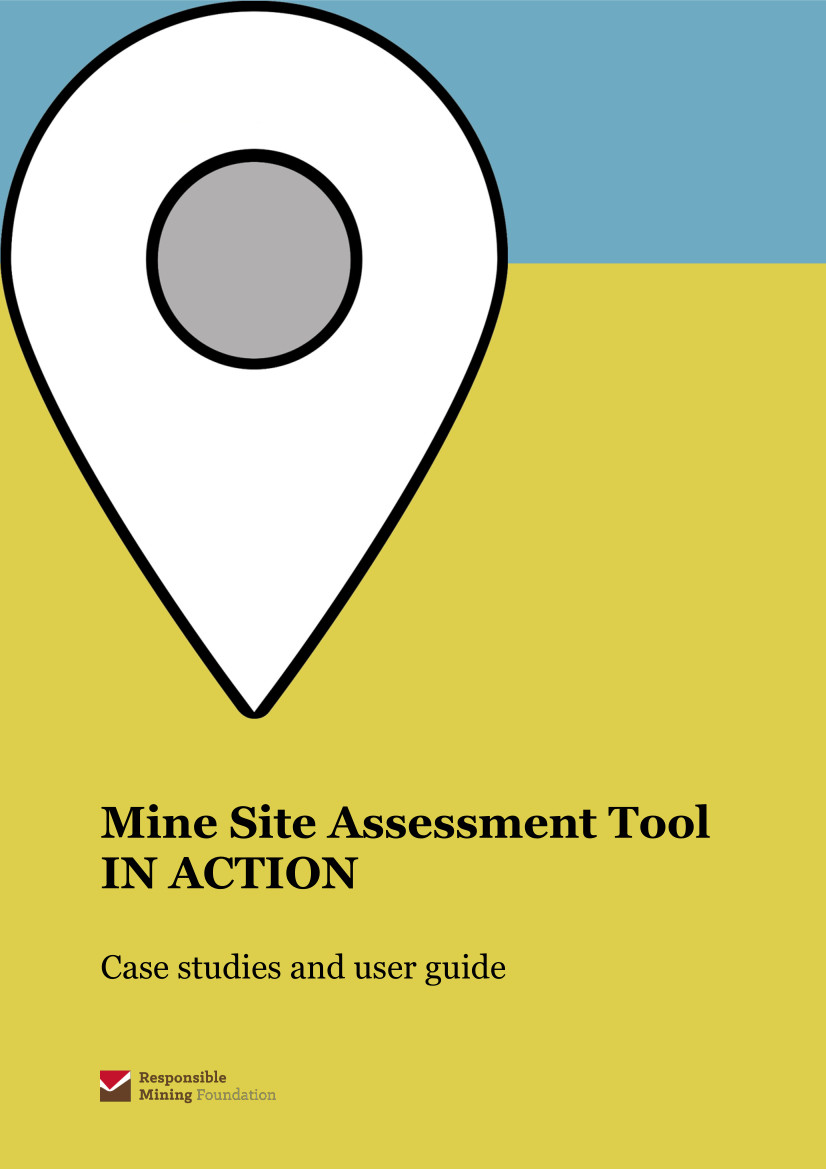Mine Site Assessment Tool (MSAT)
A tool developed by and for local stakeholders
|
|
Based on wide-ranging testing and consultation, this set of questions is intended as a starting point to constructive engagement at any mine site, big or small, and for local communities, civil society, workers, trade unions, local government and others wishing to engage in a constructive way on what one can reasonably expect from mine sites in most environments.
Following the publication of the first RMI Report in 2018, it is the result of numerous requests from mining-affected groups around the world for an easy-to-use and easy-to-understand tool. A tool to enter into dialogue with mining companies on some of the matters that directly affect communities and workers in and around a mine.
The selection of topics and issues covered is not comprehensive, but local stakeholders can follow a similar approach to address any other mining-related matter of interest.
The Mine Site Assessment Tool (MSAT) is free to use by anyone, even a mine manager seeking to engage on the fundamental issues affecting a mine site’s neighbours.
Case studies and user guide
Over the last four years, the MSAT has been applied in many different settings by mining-affected communities, labour unions, civil society organisations and other stakeholders. Following successful pilots in DRC, Ghana, Indonesia, Kyrgyz Republic and South Africa, RMF has been tracking some local applications of the tool in a few countries. Discover these short case studies in the report:
Mine Site Assessment Tool IN ACTION
This Mine-site Assessment Tool can be used to:
• Raise awareness about the basics of Responsible Mining
“The MSAT acted as an eye-opener! We did not know before that a responsible company should source goods locally, inform us about air quality or water quality. But now we know they are legitimate expectations.” ________ Abraham Kofi Amankwah – GhanaSpokesperson of the Manso Aponapon mining-affected community
• Start a conversation on the basics of Responsible Mining
“The MSAT has already helped us advance critical issues, such as water and community relations at some small mine sites. In one case, it made the company realise that the local law actually required them to monitor water quality around the site and to share the data with local communities.” ________ MIrlan Dyikanbaev – KyrgyzstanCoordinator of the Kyrgyz PWYP coalition
• Identify gaps in Responsible Mining and measure improvement over time
“The MSAT offers a great opportunity for our members already working with specific mine sites and mining companies to improve their engagement with more evidence and facts.” ________ Emil Omarov – AzerbaijanPWYP Member Engagement Manager for Asia-Pacific, Eurasia and MENA
• Do a survey to compare different mine sites on Responsible Mining
“The MSAT is very helpful to build capacity of local communities affected by mining on some critical issues. Community monitoring, also on gender issues, is essential, especially if companies and governments fail to fulfil their obligations.” ________ Viviane Sebahire – Democratic Republic of the CongoCoordinator of SOFEDI (grassroot and community-based organisation for women’s and girls’ rights)
• Help mine managers self-assess the basics of Responsible Mining
“Some companies we approached to respond to the MSAT positively welcomed our initiative. At one site, the manager said: “We thought you were coming to complain again… Now you are not only raising significant concerns but also initiating appropriate ways of dealing with the socio-economic and environmental issues that we can work on together.”” ________ Meshack Mbangula – South AfricaNational Coordinator of MACUA (community-based movement of mining-affected communities)
• Build trustful relationships among stakeholders
“International guidelines for mining companies are too sophisticated for many of the smaller companies and mine sites, where the most basic expectations are not even met, and where workers are not unionised. The simple indicators the MSAT uses are very useful to engage with mine operators on the basics of working conditions.” ________ Hermansyah – IndonesiaVice-President of SPKEP-SPSI Bekasi Labour Union

